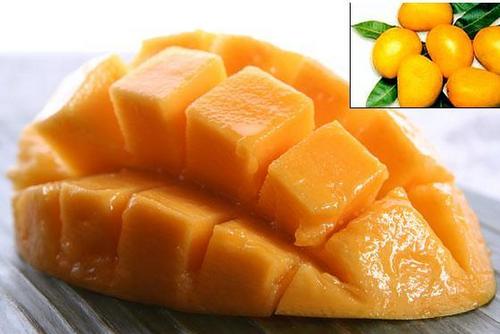| Mango Pulp |
 |
India is a leading producer and exporter of mango fruits and is popular for its exquisite mango varieties. The tradition of mango exports from India has its genesis from ancient times even before the advances in science and the establishment of refrigeration and pulp processing technologies. Mangoes were pickled for elongating their shelf life before other preserving technologies came into being. Mangoes are presently processed for the preparation of fruit pulp which goes into the making of other derivates such as juices, jams, jellies and other products.Mangoes are available as fresh fruit during the months of May to August every year and mango fruit processed pulp is available during all months of the year. The mango pulp retain all the properties of the fresh fruit and retain the taste, flavor and natural color apart from preserving the nutritional value such as vitamin A and B. The medicinal value of mangoes is believed to fight cancer and tumors as well as being an effective antioxidant. Mangoes are native to tropical Asia and have been widely consumed for their taste heady flavor and nutritional properties. Indian mangoes such as Alphonso, Kesar, Totapuri and Dusehri, mango pulp are the prime fruits which are consumed by connoisseurs the world over... |
|
Sourcing
The best mangoes used to produce mango pulp including organic mango pulp are found in Uttar Pradesh , Gujarat, Maharashtra, Andhra Pradesh and Tamilnadu. These are carefully sourced based on various parameters. |
|
Reception and maturation
The mangoes sourced for the production of organic mango pulp and canned mango pulp are initially brought into a large reception area. Space is very important at this stage of the process since mangoes are delivered in all stages of ripeness and must be spread out. Usually, these need about a week or more for ripening which is a pre-requisite for the mango pulp manufacturing process. The mangoes should be kept in the shade and covered with straw. |
|
Washing and Sorting
Hygiene and quality are accorded the highest priority in canned mango pulp manufacture. The mango fruits are thoroughly cleaned by washing with warm water to reduce the microbial contamination on the skin. Following this, the mangoes are sorted and damaged fruits removed. |
|
Crushing and Destoning
Once the mangoes have been washed, they enter the destoner and the pulp is separated from the skin and seed. |
|
Pulper
The function of the pulper is to homogenize the mango pulp. This is achieved by passing it through two screens of different size mesh of 3mm and 1.5mm which gets rid of any fibers present. |
|
Pre-heater
The pulp is next placed in a pre-heater and boiled at 65 degrees Celsius. This serves to bring down the microbial load to a level that will prevent the growth of damaging bacterial or fungus during its shelf life. |
|
Decanter
The next step is to make the pulp free of any black specks, this is done in the decanter. The output is mango pulp, deliciously golden and pure. |
|
Kettler
The pulp is then heated to 90 degrees for standardization in the kettle. The purpose of this is to give a better look and feel to the product. |
|
Filling
Finally, the mango pulp is filled in OTS cans and hermetically sealed. These cans are of global food grade standards and in standard sizes. In some case, they are customized based on buyer specifications. These sturdy cans keep the canned mango pulp safe and in perfect condition. |
|
Retraction
Once the cans are filled, the next step is to load them in a metal grating. This is then placed in the retractor and heated at 90 degrees Celsius for about twenty minutes. Following this, it’s removed and moved to the cooling section. |
|
Cooling
Cooling is very important in the manufacturing of canned mango pulp. Cans are carefully removed from the retractor and set in a cooling tank and chilled to room temperature. After this, they are sent to the finished product store. |
|
Storage
The mango pulp cans are finally moved to the storage area. Here the canned mango pulp is neatly stacked for easy handling and packing. .The standard packing is 3.1 kilograms and 5.2 kilograms respectively. |
|
Demand on the Upswing
India is right at the top of the mango industry and the leading producer of fresh mangoes and manufacturer of mango pulp and exports about 60% to the world’s mango market. Indian mango pulp exporters export 90% of their canned mango produce and the rest is for the domestic market.
The prospects for mango pulp exporters India is on the upward swing as demand is growing exponentially. The mango fruit industry is gearing up to meet this increased demand and mango pulp manufacturers are investing in infrastructure and resources to cater to this.Mango pulp is a versatile product and its popularity is soaring as it finds new uses. As manufacturers and exporters, we zoomed in on the potential this industry offers quite early and this has given us an edge. As the leading mango pulp manufacturer in India, we are constantly innovating to find new markets. |